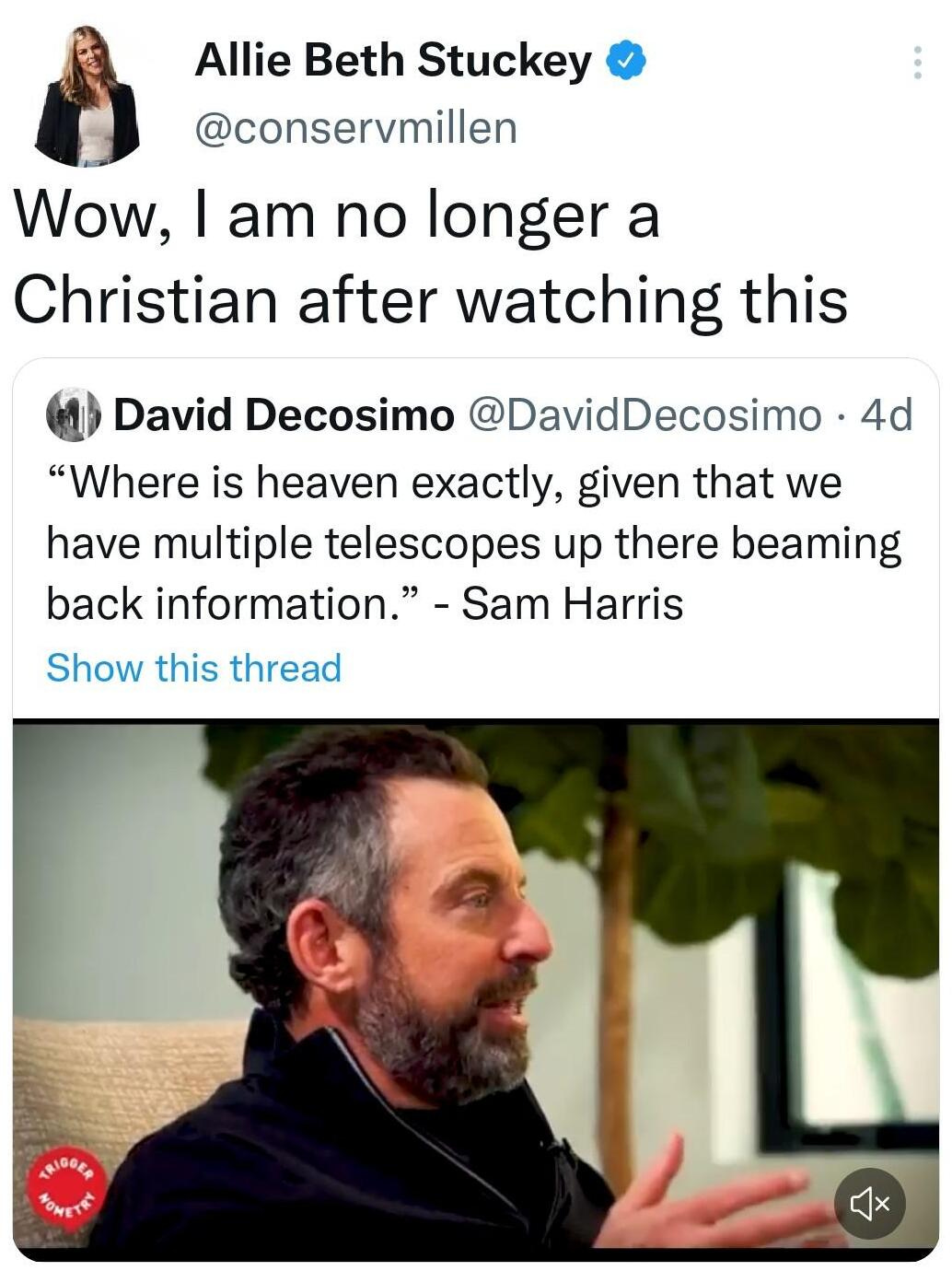Today’s first reading is one of those where the verse citation is not continuous, because we skip over irrelevant parts of the story.1
What a story, though!2 Full of twists and turns, with a surprise ending!
Simon Magus was practicing magic at the same time Philip was healing the sick and exorcizing demons. Like any good showman, Simon capitalized on Philip’s fame and claimed his tricks were from God, too. But when he actually sees Philip baptizing people, he was astounded and got baptized himself.
That’s not all. As we’re about to read, Peter and John follow Philip to Samaria and start laying on hands. What does Simon do? He offers to pay for the Holy Spirit.
This is where we get the term simony. And that’s still not all. Peter rebukes him: “May your money perish with you, because you thought that you could buy the gift of God with money. You have no share or lot in this matter, for your heart is not upright before God. Repent of this wickedness of yours and pray to the Lord that, if possible, your intention may be forgiven.”
And here’s the thing—he does. Simon repents! “Pray for me to the Lord, that nothing of what you have said may come upon me.”
So why is simony named after a guy who repented of simony? Ehh…
According to later sources, Simon reverted to has past ways. He’s known as the bad Samaritan, the Father of Heresies, and possibly the founder of Gnosticism.
Reading 1
Acts 8:5-8, 14-17
Philip went down to the city of Samaria and proclaimed the Christ to them. With one accord, the crowds paid attention to what was said by Philip when they heard it and saw the signs he was doing. For unclean spirits, crying out in a loud voice, came out of many possessed people, and many paralyzed or crippled people were cured. There was great joy in that city.
Now when the apostles in Jerusalem heard that Samaria had accepted the word of God, they sent them Peter and John, who went down and prayed for them, that they might receive the Holy Spirit, for it had not yet fallen upon any of them; they had only been baptized in the name of the Lord Jesus. Then they laid hands on them and they received the Holy Spirit.
Okay, so this is the frame story around the Simon story above.
Here, we see the first instance of Confirmation. We see there’s a distinction between being baptized in the Holy Spirit and having the Holy Spirit conferred. It can only be done by the bishops, while anyone can baptize.
Think about that—Philip is casting out demons and curing cripples, but he’s still not able to confer the special grace of Confirmation. That’s a very special blessing, indeed.
Responsorial Psalm
Ps 66:1-3, 4-5, 6-7, 16, 20
R. Let all the earth cry out to God with joy.
Shout joyfully to God, all the earth,
sing praise to the glory of his name;
proclaim his glorious praise.
Say to God, "How tremendous are your deeds!"
R. Let all the earth cry out to God with joy.
"Let all on earth worship and sing praise to you,
sing praise to your name!"
Come and see the works of God,
his tremendous deeds among the children of Adam.
R. Let all the earth cry out to God with joy.
He has changed the sea into dry land;
through the river they passed on foot;
therefore let us rejoice in him.
He rules by his might forever.
R. Let all the earth cry out to God with joy.
Hear now, all you who fear God, while I declare
what he has done for me.
Blessed be God who refused me not
my prayer or his kindness!
R. Let all the earth cry out to God with joy.
The first half of this psalm is a general song of praise for God’s miracles, specifically the exodus from Egypt and entry into the Promised Land.
But the second half is interesting, because an individual takes over the song. He’s part of the whole group of Israel, but he also understands that God knows him personally. God knows each one of us.
It’s not enough to praise God from within the group (although we can and should do that every Sunday); it’s also important to give praise and thanks individually, as well.
Reading 2
1 Pt 3:15-18
Beloved: Sanctify Christ as Lord in your hearts. Always be ready to give an explanation to anyone who asks you for a reason for your hope, but do it with gentleness and reverence, keeping your conscience clear, so that, when you are maligned, those who defame your good conduct in Christ may themselves be put to shame. For it is better to suffer for doing good, if that be the will of God, than for doing evil.
For Christ also suffered for sins once, the righteous for the sake of the unrighteous, that he might lead you to God. Put to death in the flesh, he was brought to life in the Spirit.
Notice that Peter writes “when” you are maligned, not “if.” It’s going to happen one way or another. So be like Christ—make sure your suffering is for a purpose, doing good, doing what God asks of us.
Like a good leader, Jesus doesn’t ask us to give up anything He wouldn’t give up Himself—His very life. Peter challenges us to do the same.
Alleluia
Jn 14:23
R. Alleluia, alleluia.
Whoever loves me will keep my word, says the Lord,
and my Father will love him and we will come to him.
R. Alleluia, alleluia.
It’s easy to say we love God. But actually keeping His word is a lot harder.
Gospel
Jn 14:15-21
Jesus said to his disciples: "If you love me, you will keep my commandments. And I will ask the Father, and he will give you another Advocate to be with you always, the Spirit of truth, whom the world cannot accept, because it neither sees nor knows him. But you know him, because he remains with you, and will be in you. I will not leave you orphans; I will come to you. In a little while the world will no longer see me, but you will see me, because I live and you will live. On that day you will realize that I am in my Father and you are in me and I in you. Whoever has my commandments and observes them is the one who loves me. And whoever loves me will be loved by my Father, and I will love him and reveal myself to him."
Some people really don’t like that we can’t see God.
But that’s a bit like looking for the author inside a book—you’ll never see them,3 but you’ll feel their presence everywhere.
The idea that telescopes disprove the existence of God is, quite frankly, pretty silly.
Jesus us tells us how to prove the Holy Spirit is in us—by keeping His commandments. God’s love will be in us, and it’ll shine forth to others. When we don’t, well… people start to doubt our sincerity.
This is the sin of “scandal.”4 When our misbehavior is a bad example and leads others to sin. This is what’s meant by the saying that “there are personal sins, but no private sins.” Every sin has ramafications.
But so does every virtue! Following God’s word and living a virtuous life spreads the Gospel better than any preaching could.
In fact, I finally found a reverse lectionary, so I could look up when we’re going to read a particular passage.
Unless it’s a Stephen King book.
Not to be confused with the more modern, salacious sense of the word.











